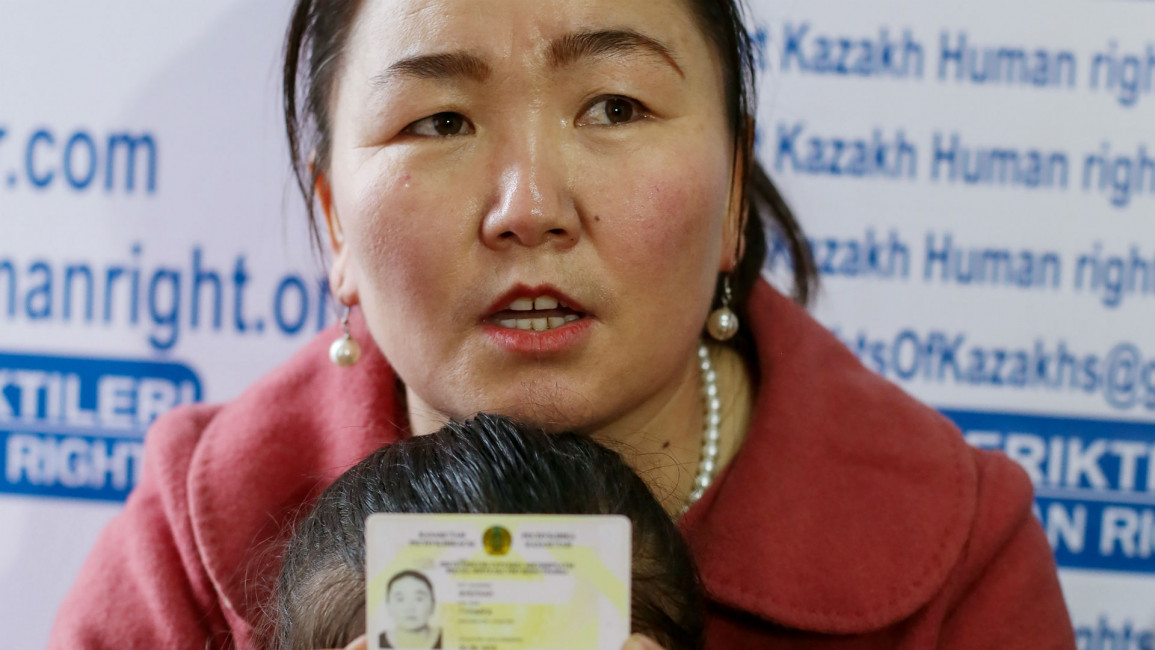Ex-detainees say China forcing Muslims into low paid labour
Former inmates of China's Muslim internment camps have spoken out about their experiences, saying they were forced into labour camps to work for less than the minimum wage.
Gulzira Auelkhan, a 39-year-old Chinese citizen of Kazakh descent, says she was part of a network of mostly Muslim minorities in Xinjiang who pass from what China calls "vocational training centres" to factories where they are forced to work.
As Auelkhan toiled stitching gloves in a factory in China's troubled Xinjiang region, her managers made no secret of where her production would be sold.
"They told us openly that the gloves will be sold abroad, so we should do a good job," Auelkhan recalled of a labour stint she says was enforced by Chinese "re-education" officials.
China says the education centres are part of its efforts to fight terrorism and separatism in Xinjiang - a region populated by mostly Muslim minority groups - and denies any use of forced labour.
But rights groups, and former workers like Auelkhan, say the practice used against Chinese minorities is widespread and at least one foreign company has dropped its Chinese supplier over the concerns.
Auelkhan says she was transferred to the glove factory at the Jiafang industrial estate in Xinjiang's Yining county after spending 15 months in two different "re-education" facilities.
More than a million people from Muslim minorities - mostly ethnic Uighurs, but also Kazakhs like Auelkhan, Kyrgyz and Hui - are being held in internment centres across Xinjiang, according to a United Nations panel of experts.
Auelkhan has residency rights in Kazakhstan but had travelled to China to see family when she was detained and put into a re-education centre.
She said life in the camps was brutal, with residents struck over the head with electrified batons for spending more than two minutes in the bathroom.
Auelkhan said she was paid only 320 yuan ($48/42 euros) for close to two months' work before her time at the factory was curtailed in December and she was allowed to return to her family in Kazakhstan. Xinjiang's average minimum wage ranges between 820 and 1,460 yuan per month, according to official statistics.
Beijing and officials in the region have fiercely denied any connection between the camps and under-paid labour.
A representative of the Xinjiang Autonomous Region Government Press Office told AFP by email that there was "no labour contract between Education and Training Centers and enterprises" and "no enterprise obtains labour from training centres".
But rights groups insist the connection exists and some companies have started taking notice.
In January, Badger Sportswear, a firm based in the US state of North Carolina, announced it would stop sourcing clothing from its Xinjiang supplier Hetian Taida over concerns it was using forced labour linked to the "re-education" campaign.
Auelkhan believes she was only released from forced labour because of a public campaign launched by her husband and supported by a Xinjiang-focused rights group in Almaty.
Several Kazakhs told rights groups their relatives detained or missing in China's Xinjiang have swapped "re-education" camps for other forms of confinement
During a recent visit to the Almaty office of the Ata Jurt rights group dedicated to supporting relatives of the Xinjiang missing, AFP spoke to several Kazakhs who claim their relatives have merely swapped "re-education" for other forms of confinement.
One of them, Aibota Janibek, 34, said her sister Kunikei Janibek telephoned her from Xinjiang in January after months without contact to confirm she had been "assigned a job" by the state at a carpet factory in Shawan county.
Aibota Janibek has since lost touch with her sister, but heard from other relatives that she was transferred from the carpet factory to another position.
"A relative told me she is now at a factory that makes paper towels for airplanes," Janibek said.



